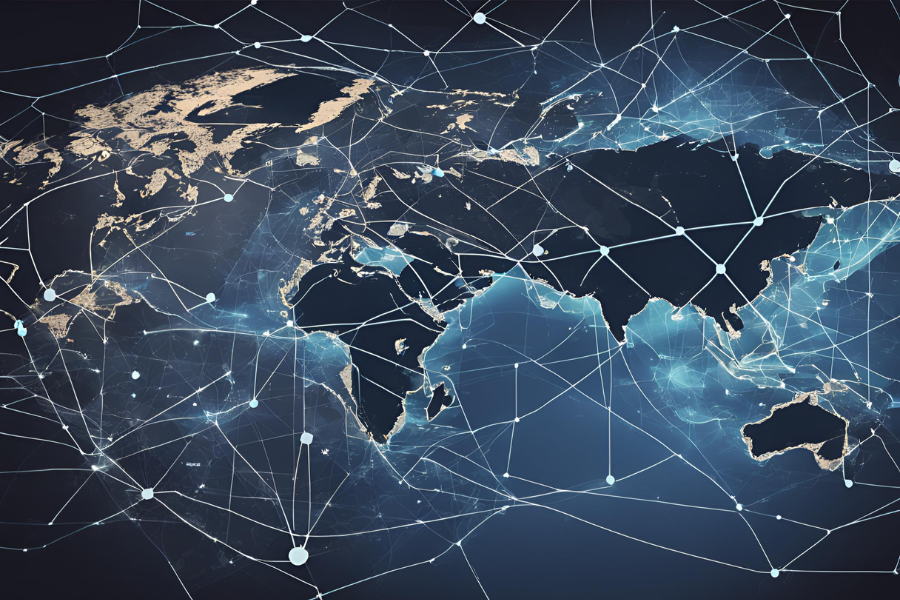
Introduction
In an era where data is the new oil, Artificial Intelligence (AI) is emerging as a powerful weapon in the economic strategies of global superpowers. From analyzing financial markets to shaping national policies, AI is redefining how nations vie for economic dominance. This blog delves into the influence of AI in the economic warfare between world powers, exploring its potential to both empower and disrupt.
The Rise of AI in Economic Strategy
AI technologies are being rapidly integrated into various facets of national economies. Governments and corporations alike are leveraging AI for advanced analytics, decision-making, and automation. Here’s how AI is playing a pivotal role:
- Predictive Analytics and Market Strategies: AI-powered predictive analytics are providing nations with unparalleled insights into global market trends. Algorithms analyze vast datasets to forecast economic shifts, enabling countries to preemptively adjust their economic policies and strategies.
- Trade and Supply Chain Optimization: AI is revolutionizing supply chain management by enhancing efficiency and resilience. Advanced algorithms optimize routes, manage inventory, and predict disruptions, giving countries a competitive edge in global trade.
- Financial Surveillance and Regulation: AI systems are employed to monitor financial transactions and detect fraudulent activities. This enhances the ability of countries to safeguard their financial systems from cyber threats and economic espionage.
AI-Driven Economic Espionage
The digital battleground extends beyond market strategies and into the realm of economic espionage. AI is being used to conduct sophisticated surveillance and gather intelligence on rival nations’ economic activities. Key areas include:
- Data Mining and Competitive Intelligence: Nations are using AI to mine vast amounts of data from public and covert sources. This data provides critical insights into competitors’ economic plans and capabilities, influencing national economic strategies.
- Cyber Warfare and AI: AI is amplifying the capabilities of cyber-attacks aimed at disrupting the economic stability of rival nations. From targeting financial institutions to manipulating market data, AI-driven cyber warfare is a growing concern in the realm of economic security.
AI in Policy Making and Economic Diplomacy
AI’s influence extends into the policy-making arena, where it assists governments in crafting more effective economic policies. Machine learning models simulate the potential outcomes of various economic scenarios, aiding in decision-making and negotiations on the global stage.
- Policy Simulation and Economic Modelling: AI-driven economic models help simulate the impact of policy changes, allowing governments to foresee potential repercussions and refine their strategies.
- Negotiation and Diplomacy: In international economic negotiations, AI tools analyze historical data and patterns to provide strategic insights, helping negotiators achieve more favorable outcomes.
Challenges and Ethical Considerations
While AI offers numerous advantages, its deployment in economic warfare raises significant ethical and practical concerns. These include:
- Bias and Transparency: AI systems can perpetuate existing biases in data, leading to skewed economic insights and decisions. Ensuring transparency and fairness in AI algorithms is crucial to avoid exacerbating inequalities.
- Economic Disparities: The uneven adoption of AI technology can widen economic disparities between nations. Wealthier countries with advanced AI capabilities may gain disproportionate advantages, intensifying global economic inequalities.
- Regulation and Governance: The rapid advancement of AI necessitates robust regulatory frameworks to prevent misuse and ensure that AI-driven economic activities are conducted ethically and responsibly.
Conclusion
Artificial Intelligence is fundamentally altering the dynamics of economic competition between global powers. By enhancing predictive capabilities, optimizing trade, and bolstering economic intelligence, AI is becoming a cornerstone of national economic strategies. However, its deployment in economic warfare underscores the need for careful consideration of ethical implications and equitable governance.
As nations continue to harness AI for economic advantage, the global economic landscape will be shaped by the ability to balance technological innovation with responsible and inclusive practices.


